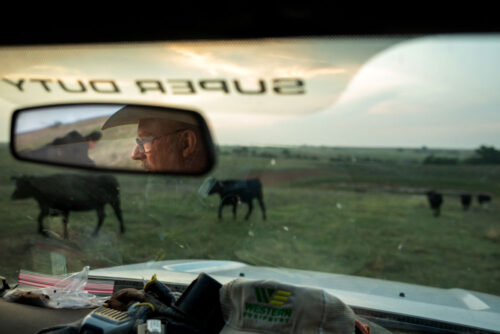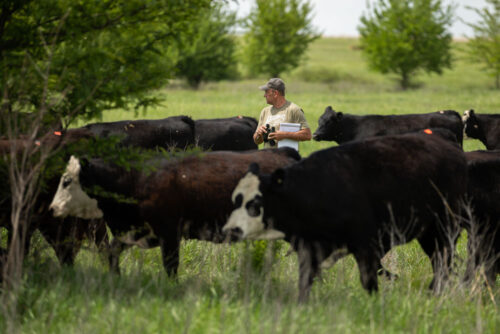Planned Giving:
Estate Planning to Leave an Agricultural Legacy
One of the most meaningful ways to leave a lasting legacy is to help safeguard the land and its ability to provide society’s most fundamental resources — clean water, food and fiber. Planning today gives you the ability to maximize the good you can do for future generations.

Give a Lasting Gift
There are several options available to you for planned giving:

Bequests and Charitable Trusts
These include gifts left through a will or trust. You may leave a specific dollar amount to Noble Research Institute in your will or trust, or you can designate a percentage of your estate to Noble. If you are interested, Noble will provide you and/or your legal counsel with guidance and the language needed to ensure your intentions are fulfilled.

Charitable Gift Annuities
With this gift, you begin donating now while receiving a percentage in income annually for life. If you are interested in this option, Noble Research Institute will help you begin the process with an outside specialist.

Life Insurance Beneficiary Designation
You may name Noble Research Institute as the beneficiary or contingent beneficiary of your life insurance policies. This can include adding Noble as a beneficiary of a portion of your plan, transferring ownership of a paid-up policy, or creating a new policy with Noble as the owner.

Retirement Plan and Investment Account Beneficiary Designation
You may name Noble Research Institute as the beneficiary or contingent beneficiary of a retirement account, such as an individual retirement account or 401(k) investment, certificates of deposit, bank accounts, or pension plans. Retirement funds left to heirs may be subject to income/inheritance tax. However, retirement funds left to a charity, like Noble, are not subject to taxes, allowing you to maximize the impact of your contribution.

Why Planned Gifts?
In addition to knowing your gift delivers solutions to farmers and ranchers and benefits society as a whole, you may be eligible for tax benefits now. These could include reduced income taxes, capital gain taxes and transfer taxes. It can also reduce the out-of-pocket cost of a gift, meaning you’re able to give more than you could otherwise.
Contact Us
If you have any questions or would like to talk more about giving options, please email us at [email protected] or call Lindsey Kidd, Officer of Impact Giving, at 580-224-6244.
Disclaimer: The material presented on this webpage is intended as general educational information on the topics discussed herein and should not be interpreted as legal, financial or tax advice. Please seek the specific advice of your tax advisor, attorney and/or financial planner to discuss the application of these topics to your individual situation.